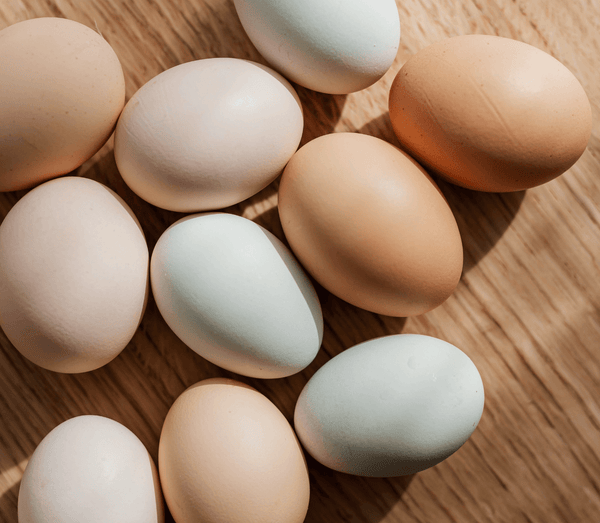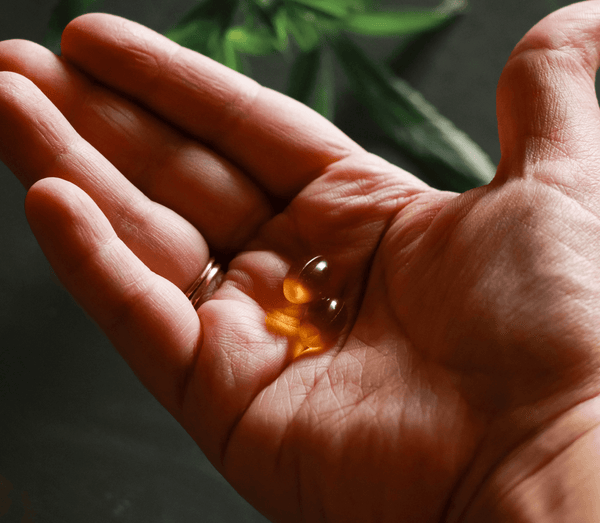Article
Is Ubiquinol The Same As CoQ10?
Posted on
In the world of fertility supplements, few nutrients receive as much attention as Coenzyme Q10 (CoQ10). It plays a central role in energy production1, supports mitochondrial health4, and protects reproductive cells from oxidative damage3. But when shopping for a CoQ10 supplement, you might notice two different terms: ubiquinone and ubiquinol. Are they the same? Which form is better, especially when trying to conceive?
This comprehensive guide will explore the differences between ubiquinol and CoQ10, their respective roles in fertility, absorption and bioavailability differences, and how to use it effectively as part of your preconception or fertility routine.
What Is Coenzyme Q10 (CoQ10)?
CoQ10 is a vitamin-like compound naturally produced by the body and present in almost every cell. Its main job is to help generate energy within the mitochondria – the powerhouses of our cells1. It also serves as a potent antioxidant, protecting cells from free radical damage3.
In the context of fertility, this is hugely important. Mitochondria are vital for healthy egg and sperm function, including egg maturation, fertilisation, and early embryo development4. As such, CoQ10 supplementation can support energy-intensive reproductive processes.
To dive deeper into what CoQ10 is and why it matters, click here.

Ubiquinone vs. Ubiquinol: What’s the Difference?
CoQ10 exists in two forms:
- Ubiquinone: The oxidised form of CoQ10. This is the traditional version found in many supplements.
- Ubiquinol: The reduced, active antioxidant form that your body actually uses.
When you take a ubiquinone supplement, your body has to convert it into ubiquinol before it can be effectively utilised by cells. This conversion process is where the problem lies — it becomes less efficient as we age or in individuals with certain health conditions1.
Therefore, taking ubiquinol, which is already in its usable state, ensures better absorption and faster support to the mitochondria. This is particularly important when fertility timelines are tight, such as in IVF cycles or later maternal age.
Learn more about how CoQ10 supports fertility in our detailed article here.
How Ageing Affects CoQ10 Conversion and Fertility
Age is a major factor when trying to conceive, and one of the biochemical reasons is the decline in natural CoQ10 production and conversion. As we age, particularly from our mid-30s onwards, the body becomes less efficient at converting ubiquinone to ubiquinol1. This can result in reduced mitochondrial efficiency, which directly impacts egg and sperm quality.
Eggs, for example, require significant amounts of energy for proper division and implantation. Poor mitochondrial function has been linked to chromosomal abnormalities, lower fertilisation rates, and reduced embryo viability4. The same holds true for sperm motility and DNA integrity3.
By supplementing with pre-converted ubiquinol, you provide your body with a more readily available form of CoQ10 that supports optimal cellular energy output and antioxidant protection, crucial factors for conception.

Ubiquinol Absorption: The Bioavailability Advantage
Multiple studies have shown that ubiquinol is more bioavailable than ubiquinone, in some cases by as much as 60%2. This means you can achieve higher CoQ10 blood levels with lower doses of ubiquinol compared to ubiquinone.
This is particularly advantageous in fertility contexts, where time is often limited and optimising mitochondrial health is urgent. Faster absorption and greater bioavailability mean quicker support to the cells that need it most.
The Role of Ubiquinol as an Antioxidant
In addition to its role in energy production, ubiquinol is one of the most powerful fat-soluble antioxidants in the human body3. It helps neutralise free radicals, unstable molecules that can cause cellular damage and accelerate reproductive ageing.
Oxidative stress is known to negatively impact both male and female fertility. In women, it can damage eggs, reduce ovarian reserve, and interfere with hormone balance. In men, it can lead to reduced sperm motility and increased DNA fragmentation3.
Supplementing with ubiquinol helps restore redox balance, reduce oxidative stress, and preserve reproductive potential.
How Mitochondria Use Ubiquinol for Energy Production
Mitochondria generate energy in the form of ATP (adenosine triphosphate) through a process called the electron transport chain. Ubiquinol plays a critical role in this chain, shuttling electrons and enabling efficient energy conversion4.
In eggs and sperm, this energy is used to power motility, cellular division, and developmental programming, all essential functions for healthy conception and pregnancy.
Why Zita West Uses Kaneka Ubiquinol CoQ10
Kaneka Ubiquinol is the gold standard in CoQ10 supplementation. It is the only clinically studied and patented ubiquinol on the market, produced through a natural fermentation process that yields a bioidentical compound to what the body produces2.
That’s why we use it in our fertility-focused supplement range, it’s backed by science, highly bioavailable, and trusted by clinicians worldwide. When trying to conceive, quality matters.

How to Take Ubiquinol for Fertility
Because CoQ10 is fat-soluble, it should be taken with a meal containing healthy fats to improve absorption. Typical doses for fertility support range from 100mg to 300mg daily, depending on age and individual circumstances.
For guidance on how much to take and when, tap here for our dosage guide.
Consistency is key, CoQ10 builds up in the body over time, so it’s best to begin supplementation at least 2-3 months prior to trying to conceive or beginning fertility treatments.
FAQs
Compare the absorption rates of ubiquinol versus ubiquinone
Ubiquinol has up to 60% higher absorption compared to ubiquinone, making it more effective for boosting CoQ10 levels quickly2.
Explain how aging affects CoQ10 conversion in the body
As we age, our body's ability to convert ubiquinone into ubiquinol declines, reducing the efficacy of standard CoQ10 supplements1.
Detail the role of ubiquinol as an antioxidant in cells
Ubiquinol acts as a potent antioxidant, protecting cells from oxidative stress and supporting mitochondrial health3.
List the health benefits of taking ubiquinol supplements
Ubiquinol supports energy production, reduces oxidative damage, improves mitochondrial function, and may enhance egg and sperm quality3.
Describe how mitochondria use ubiquinol for energy production
Mitochondria use ubiquinol in the electron transport chain to generate ATP, the primary energy source for cellular activity, especially in eggs and sperm4.
References
- 1 Does coenzyme Q10 supplementation improve fertility outcomes in women undergoing assisted reproductive technology procedures? A systematic review and meta-analysis of randomized-controlled trials
- 2 Coenzyme Q10: Novel Formulations and Medical Trends
- 3 Kaneka Ubiquinol (CoQ10) & Fertility: What the Research Shows
- 4 Mitochondrial dysfunction in oocytes: implications for fertility and ageing
Further reading
-

How to Improve Egg Quality Naturally: Nutrients, Lifestyle & Supplements
For anyone navigating fertility, whether trying to conceive naturally or undergoing treatments like IVF or egg freezing, one term stands... -

Understanding Fertility PTSD
Trigger Warning: This content discusses infertility, pregnancy loss, and trauma, which may be distressing for some readers. Please take care...


